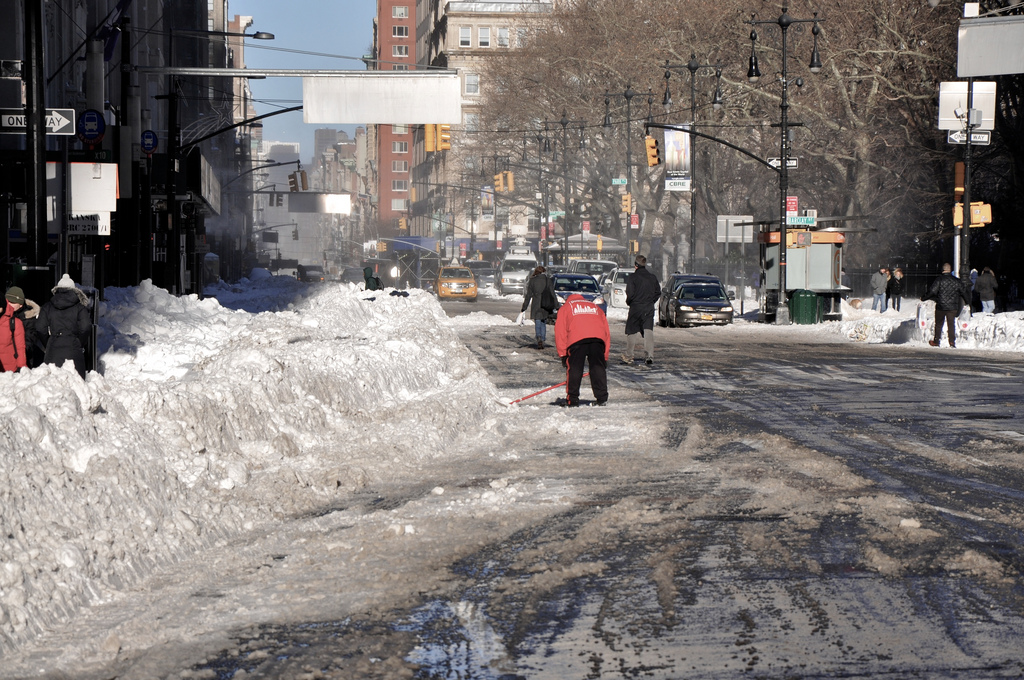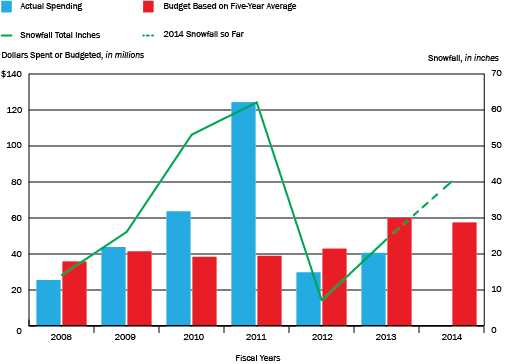Why You Shouldn't Necessarily Celebrate Snow Days

By:
Are you more productive when the weather is terrible?
Last year, your fellow Americans were not as productive in bad weather. US productivity dropped at its fastest pace in over a year during last year's brutal winter. That winter -- which will mostly be remembered for northeasterners complaining on Twitter -- made a solid dent in our pocket books. It cost the US economy billions last year and also cost thousands of jobs.

As the northeast buckles in for another winter storm, we can't help but wonder if we're in for another rough economic winter.
How much does a snow day cost?
Announcing a snow day and letting workers stay home has a big effect. Snow days in 2010, for example, cost the federal government $71 billion worth of productivity each day. Increasing the amount of employees who can work from home has helped with these costs, though. Some jobs, however, cannot be done from home. And when weather is so bad that workers cannot safely get to work, there's no choice but for the boss -- whether it's the federal government or it's a private employer -- to take a hit.
Another cost is snow removal. New York City is no stranger to snow. But nothing prepared it for 2011, where the city had $120 million in snow removal expenses. The budget for that year? It was just under $40 million. Yikes.
"We've never changed our snow-fighting plans due to budget concerns," said Jason Post, spokesman for then New York Mayor Mike Bloomberg, back in 2011. "We'll find the money elsewhere."
Recently, New York has fared better in dealing with winter storms, but you can see the budget damage in 2011:

Snow removal includes not just the cost of plowing the snow. Sometimes, where there's too much snow to let sit on on the side of the road, cities must transport it elsewhere. This happened to Westport, Conn. during that brutal 2011 winter. The city eventually dumped the snow in parking lots and near beaches, hoping it would melt without causing a flood.
When bad weather can be good for the economy
Here's the thing, though. Bad weather is not necessarily the worst thing to happen to our economy.
Last year, one study concluded that bad weather can be good for productivity because it eliminates distractions to workers.
"When the weather is bad, individuals appear to focus more on their work than on alternate outdoor activities," the study said.
But this study admits that bad weather can only be so bad. That is, some rainy weather might keep you at the office a little later, but truly severe weather, such as a snowstorm, might prevent you from getting there at all. So, there are not positives to bad weather when a business is physically disrupted.
Of course, if you're working outside, well, then everything is thrown off. The Chicago Cubs found this out recently when they announced that renovations to their stadium, Wrigley Field, won't be done in time for Opening Day in April. Why? Construction delays caused by bad weather
If you're running a business that's indoors, though, it seems your ideal situation is for the weather to be bad, but not too bad. Bad enough to keep minds off an early happy hour at a outdoor bar, but still good enough for the roads to be passable.
